IOM Yemen: Catalyzing Change in Yemen: How a Teacher is Reshaping the Future of the Next Generation
Ma’rib, Yemen
“I firmly believe that if a woman is educated, she can make better-informed decisions,” explains Salwa, the principal of Khawla bint Al-Azwar School in Ma’rib.
From a very young age, Salwa harbored dreams of becoming a teacher and supporting girls in their academic pursuits. As she grew older, she turned her dream into a reality and became a math teacher in her hometown, Hajjah.
Despite the responsibility of caring for her sick husband and their five children, Salwa persevered in her passion for teaching. However, the nearly decade-long conflict in Yemen shattered the fulfilling life she had built for herself and her family.
“My children were all traumatized by the conflict and my husband faced mental health challenges and a back injury,” she recounts. “As the situation escalated, we had to make a swift decision.”
With no other option, Salwa and her family were forced to leave the life they cherished in Hajjah and start over in Ma’rib, a town in a semi-arid landscape in Yemen.
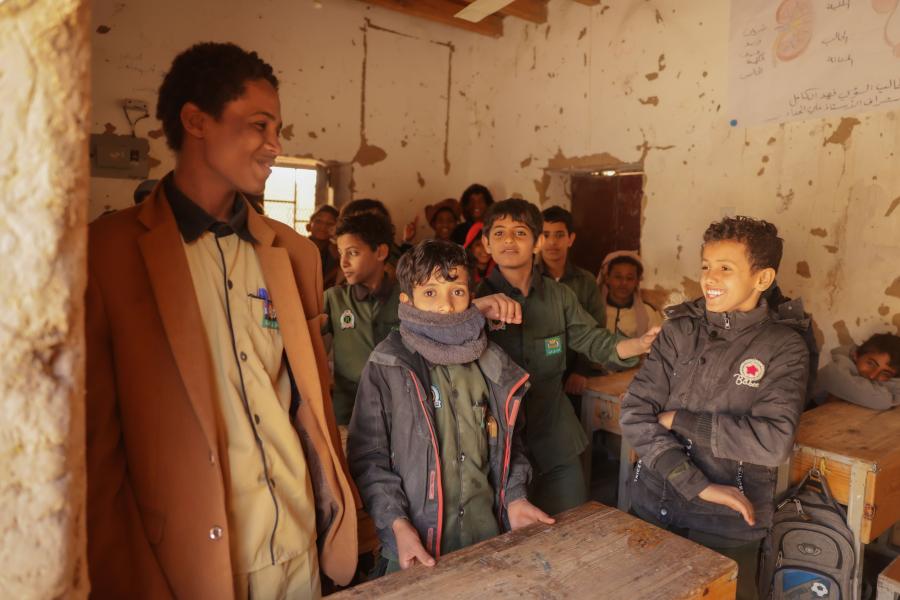
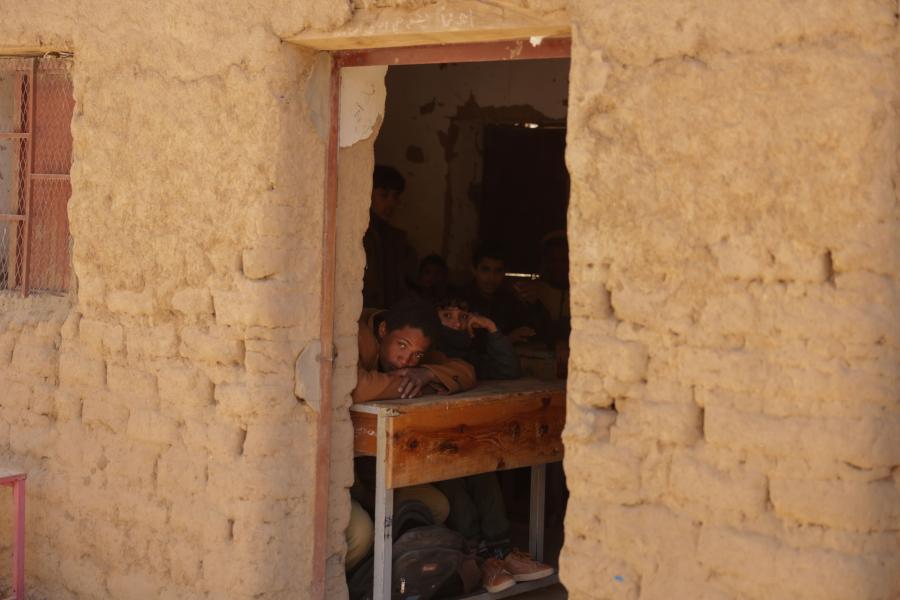
Upon arriving in Ma’rib, the family had to sell their car – the only possession they had left – to rent a modest house. With Salwa losing her job as a teacher and now taking on the role of the breadwinner for the family, she turned to creating and selling handicrafts to make ends meet.
“I miss teaching back in Hajjah, although things are no longer the same,” Salwa reflects. “I’ve heard that many students dropped out of school.”
In Yemen, over 2.4 million children have discontinued their education, with almost a million dropping out since the conflict escalated in March 2015.
Not willing to give up on teaching, Salwa continued searching for teaching opportunities in nearby schools in Ma’rib. Eventually, she learned that Khawla Secondary School for girls was looking for a math teacher. Without hesitation, Salwa applied and was soon accepted.
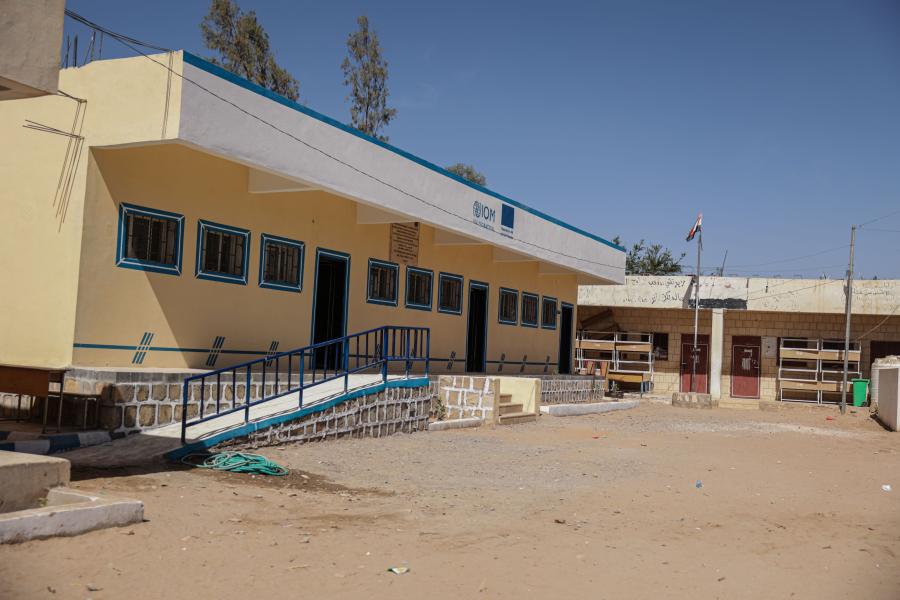
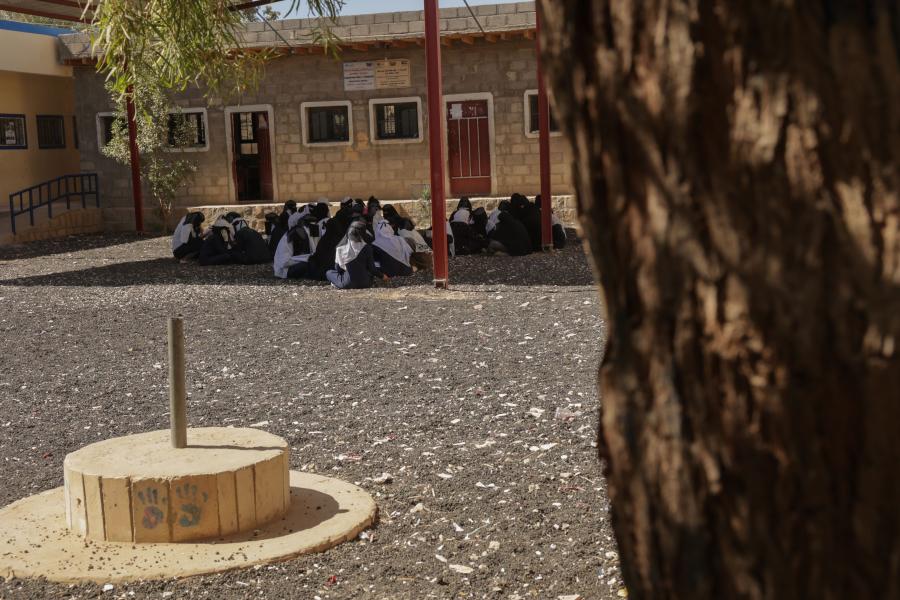
As the school faced overcrowding, classes were held in two shifts and three tents were set up in the yard to accommodate the growing number of students.
The UN estimates that since the conflict’s onset, over 2,000 schools have been damaged or repurposed, putting 8 million school-age children at risk of leaving the education system, including more than one million displaced children.
Driven by enthusiasm and the need to support her family, Salwa took on the challenge of teaching during both shifts. However, she encountered many challenges due to administrative and infrastructure issues within the school.
Despite being the sole provider of primary and secondary education for girls in five displacement sites in Ma’rib, Khawlah School struggled with an aging building and makeshift huts in the yard used as classrooms. These cramped huts, with an average of 45 students each, lacked proper ventilation and protection from the harsh weather conditions typical of Ma’rib.
Teachers found it challenging to provide adequate attention to students given the inconvenient environment, while students faced difficulty understanding lessons in stifling summers or chilly winter. These challenges, paired with the economic downturn, put a strain on families unable to afford education expenses, leading to a significant number of students, especially girls, dropping out of school.
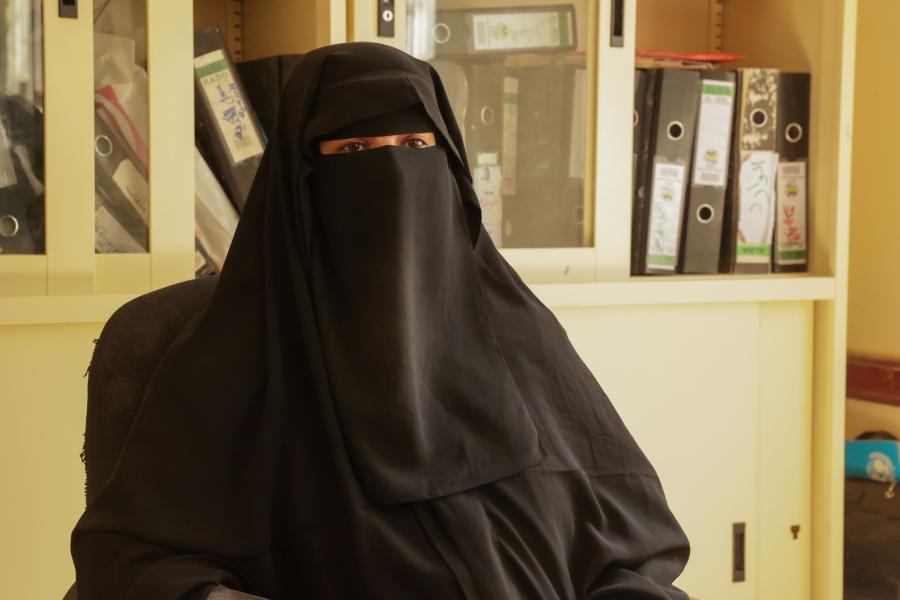
“In this area, parents restrict their daughters from continuing their education once they reach the fifth or sixth grade due to cultural constrains,” Salwa explains. “I remember visiting my students’ houses, practically begging parents to let their daughters continue studying.”
Ever since Salwa moved with her family to Ma’rib seven years ago, she has remained committed to strengthening the children’s education. She is now the school’s principal and continues to advocate for the girls’ right to education.
“This year, we launched an awareness-raising campaign on the importance of education for parents, especially mothers, hoping that they understand how crucial education is for girls.”
Salwa’s dedication to supporting children’s education did not stop there; she also formed a school sponsoring system that covers education expenses for underprivileged and orphan children. Both schoolteachers and financially stable families actively participated in sponsoring the children.
Despite Salwa’s efforts, the school needed further support, prompting the International Organization for Migration (IOM) to step in and provide urgent support to the educational facility. IOM built three additional classrooms and four new latrines, rehabilitated three old ones, connected the school to a water source and maintained the water cooler.
“This intervention, guided by a needs assessment, aims to alleviate the strain caused by the high demand for education,” explains Jamal Al-Zuoraqi, IOM’s Programme Field Assistant in Ma’rib. “Additionally, we hoped to assist in reintegrating some of the students who had previously dropped out of school.”
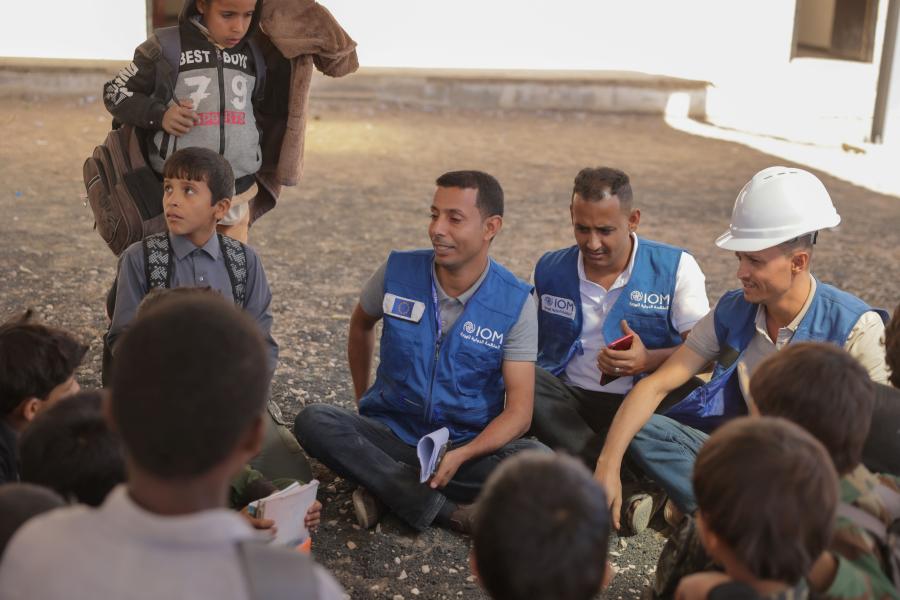
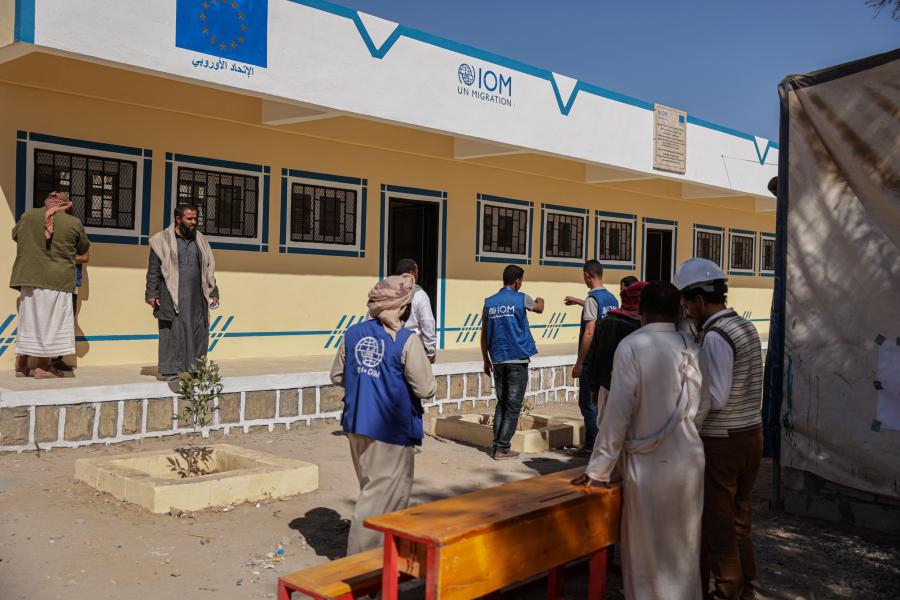
IOM also distributed dignity kits and school bags complete with stationery to the students. According to Salwa, the bags addressed a significant problem and encouraged many girls who had previously dropped out due to their families’ poor financial situation to return.
“The students were extremely happy with the bags they received,” she says. “They felt relieved after the school expansion and the installation of fans in the classes. We no longer have to worry about students getting sick or fainting because of the weather while studying in those huts. They can now access clean water points when they are thirsty.”
IOM is dedicated to upholding the right to education in vulnerable communities impacted by the conflict in Yemen. As part of this initiative, IOM has rehabilitated and built 32 classrooms and temporary learning spaces for 24 schools in Ma’rib, benefitting over 28,000 students, each of whom also received a school bag.
Salwa is grateful that her school can now accommodate more students who can complete their education.
“The rate of girls finishing their school education has risen significantly,” she concludes.
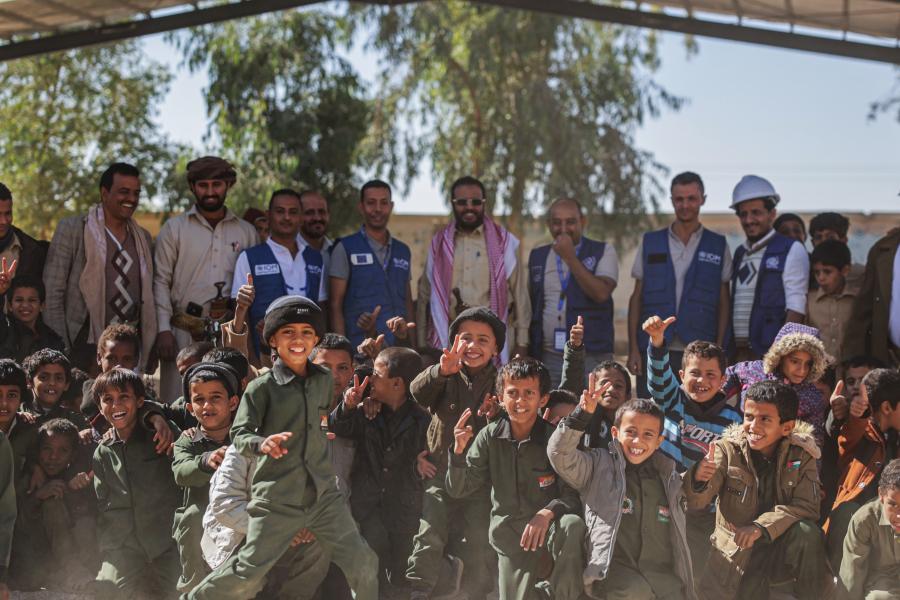
The Education in Emergency Project in Ma’rib is funded by EU Humanitarian Aid, in the framework of IOM’s camp coordination and camp management activities.
This story was written by Mennatallah Homaid, Senior Donor Visibility and Communications Assistant, and Haithm Abdulbaqi, Media and Communication Assistant, with IOM Yemen.

